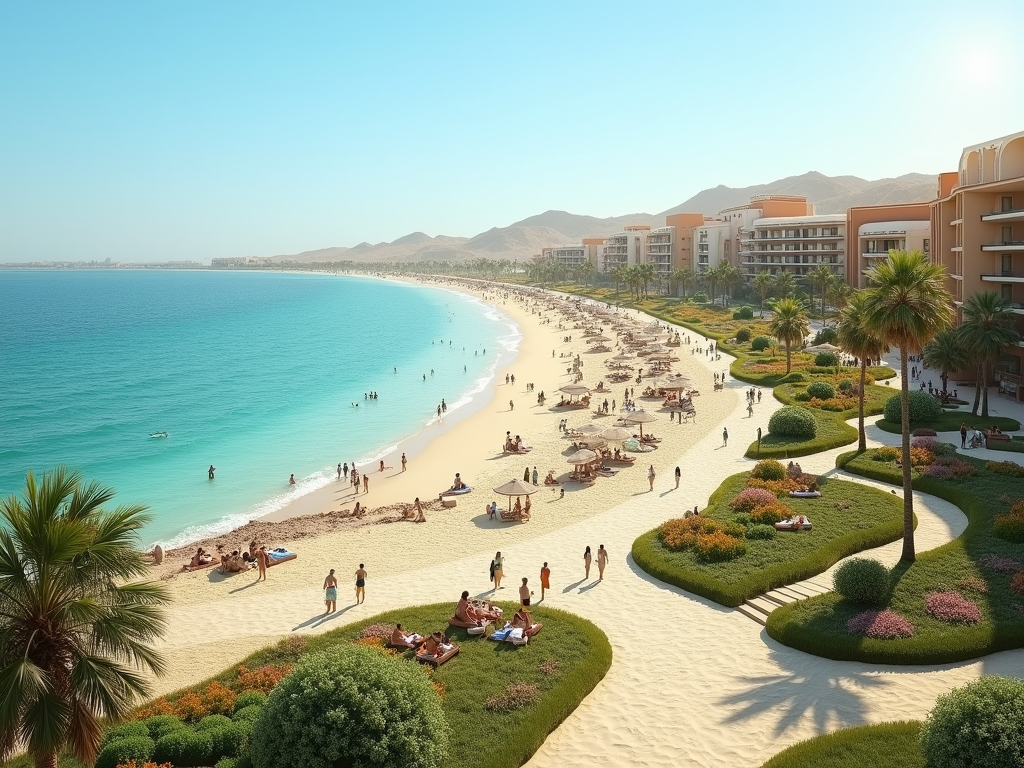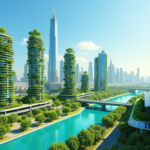How Dubai is Building a Sustainable Business Ecosystem
Dubai is actively laying the groundwork for a sustainable business ecosystem by integrating innovative practices, promoting green policies, and fostering collaboration between public and private sectors. The emirate’s strategy revolves around three primary goals: enhancing economic growth, reducing environmental impact, and promoting social well-being. As a global business hub, Dubai recognizes the importance of balancing economic pursuits with sustainability, making it a model for other cities worldwide. By investing in renewable energy, waste management solutions, and sustainable urban development, Dubai is setting ambitious targets to position itself as a pioneer in the green economy.
Innovative Green Initiatives

Dubai’s commitment to sustainability is evident through its various innovative green initiatives aimed at fostering a more sustainable business environment. These initiatives not only support the local economy but also attract international businesses looking to invest in greener operations. Key programs include:
- Dubai Clean Energy Strategy 2050: This ambitious plan aims to provide 75% of Dubai’s total power output from clean energy sources.
- Dubai’s Green Building Regulations: Mandating that all new buildings meet specific sustainability criteria, thus reducing energy consumption and waste.
- Green certification programs: Supporting businesses to adopt sustainable practices and become certified, which enhances their reputation and marketability.
Collaboration between Private and Public Sectors

The collaboration between Dubai’s government and private companies plays a pivotal role in fostering a sustainable business ecosystem. This synergy is crucial for creating an environment where sustainable practices flourish, as illustrated by several initiatives. Notable collaborations include:
- The Dubai Investment Development Agency partnering with private firms to promote sustainable business models.
- Joint ventures aimed at developing smart city solutions, ensuring energy-efficient infrastructure.
- Public-private partnerships for waste management systems that recycle and reuse resources, minimizing landfill use.
Sustainable tourism is another cornerstone of Dubai’s business ecosystem. The city aims to balance its thriving tourism sector with eco-friendly practices. Initiatives in this realm include:
- Promoting eco-lodges and sustainable hotels that reduce energy consumption and water waste.
- Encouraging wildlife conservation by supporting businesses that protect local flora and fauna.
- Implementing responsible tourism practices that educate visitors on local culture and environmental stewardship.
Education and Awareness Programs
As part of its strategy to build a sustainable business ecosystem, Dubai is investing in education and awareness programs that focus on sustainability. These programs aim to equip the workforce with the knowledge and skills needed to drive sustainable practices. Noteworthy initiatives include:
- Training workshops on sustainable business practices tailored for small and medium enterprises (SMEs).
- Awareness campaigns targeting schools and universities to encourage the next generation to prioritize sustainability.
- Collaboration with industry leaders to share best practices and innovative solutions for sustainability challenges.
Technological Advancements in Sustainability
Technology plays a crucial role in Dubai’s pursuit of a sustainable business ecosystem. The emirate is investing heavily in smart city technologies that enhance efficiency and reduce resource consumption. Key advancements include:
- Smart energy management systems that optimize energy use in buildings.
- Waste management technology that improves recycling rates and minimizes landfill waste.
- Innovations in water conservation technologies, including smart irrigation systems.
Conclusion
Dubai’s ambitious approach to creating a sustainable business ecosystem is transforming the emirate into a global leader in sustainability. By implementing innovative initiatives, fostering collaborations, and leveraging technology, Dubai is setting an example for cities around the world. The integration of sustainability into business practices not only contributes to environmental conservation but also enhances economic resilience. As the city continues to evolve, the pursuit of a greener future will remain at the forefront of its strategic planning, ensuring long-term benefits for all stakeholders.
Frequently Asked Questions
1. What is the Dubai Clean Energy Strategy 2050?
The Dubai Clean Energy Strategy 2050 is a comprehensive plan aimed at providing 75% of Dubai’s total power output from clean energy sources by 2050, enhancing sustainability in the city.
2. How does Dubai promote sustainable tourism?
Dubai promotes sustainable tourism through initiatives focused on eco-lodges, wildlife conservation, and responsible tourism practices that educate visitors about local culture and the environment.
3. What role do public-private partnerships play in sustainability efforts in Dubai?
Public-private partnerships in Dubai facilitate collaboration on projects related to sustainable infrastructure, waste management, and investment in innovative green technologies, enhancing the collective impact of sustainability efforts.
4. What types of educational programs does Dubai offer to promote sustainability?
Dubai offers training workshops for SMEs, awareness campaigns in schools, and collaborations with industry leaders to share best practices and promote sustainability knowledge across various sectors.
5. How does technology contribute to Dubai’s sustainability goals?
Technology contributes to Dubai’s sustainability goals through smart city solutions that optimize energy use, improve waste management, and enhance water conservation, driving long-term eco-efficiency in urban living.







